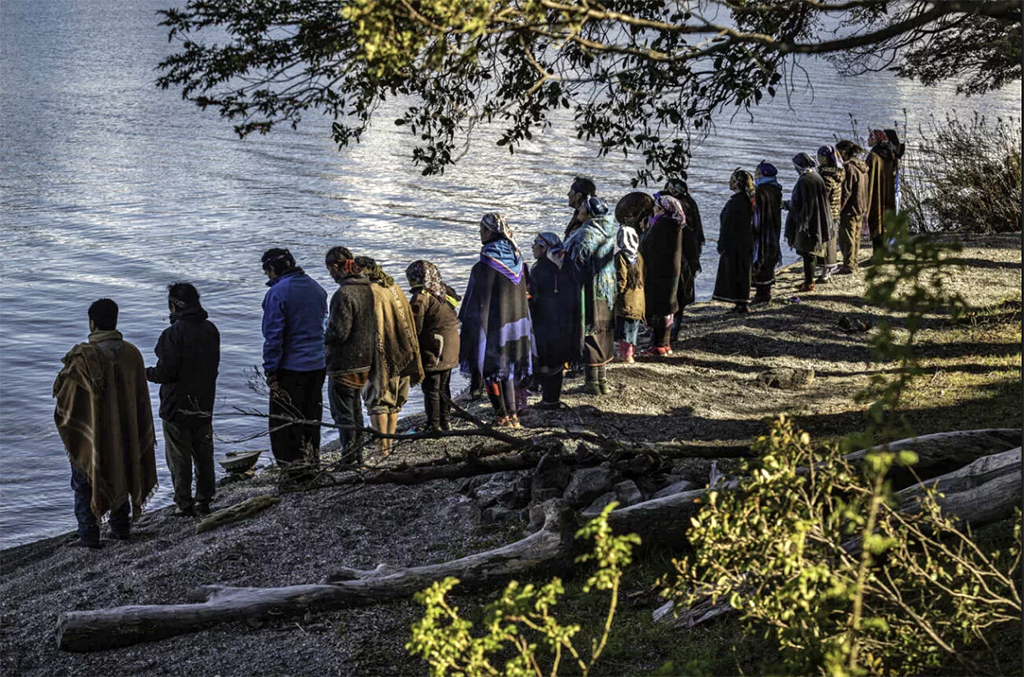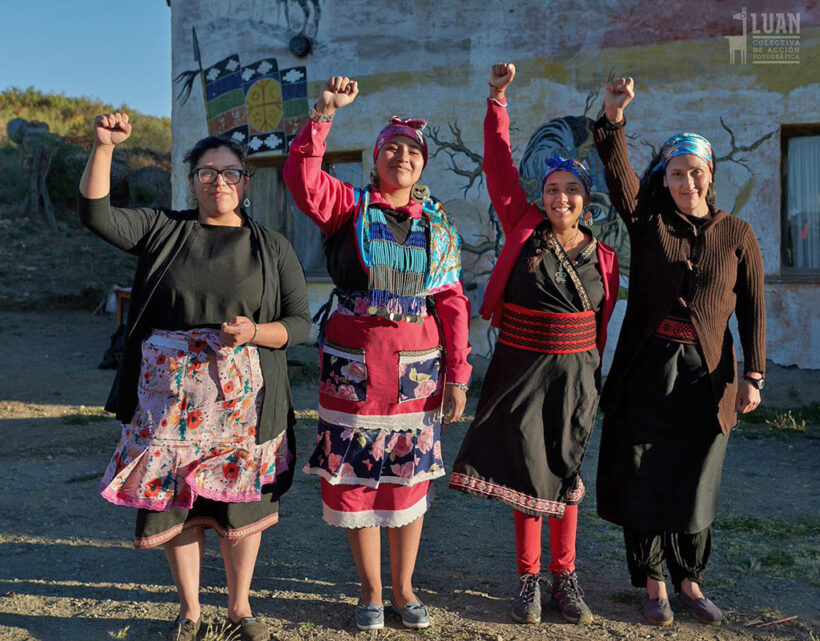2023, Argentina. In the country of the award-winning “1985”, human rights continue to be violated. 4 Mapuche women have been imprisoned for more than 6 months, crammed with their children, and accused of a crime that the law does not penalize with imprisonment. They are victims of racism, of the sectors that covet their territories, and of an accomplice State that, in the context of the election year, suspended without justification the dialogue table planned to resolve the conflict.
Among many other manifestations of support, Convergencia de las Culturas and Pressenza promote the claim and the denunciation of these facts abroad, summoning people and solidarity organizations to write to the Argentine embassies and to the media of their countries. A model letter is attached. Rume mañun (thank you very much).
On October 4, 2022, in the vicinity of Bariloche, Argentina, the Mapuche community of Lafken Winkul Mapu was violently evicted from its territory.
A Unified Command of 250 troops from various security forces advanced by land and air on the community of just 30 people, including children.
Their wooden houses were completely destroyed and 7 women were detained and held incommunicado, and prevented from connecting with their families or their lawyers. One of them, who was very far along with her pregnancy, ended up giving birth in custody in a hospital. Four others were transferred to a prison 1500 km away in handcuffs, shackled, and not knowing where they were being taken. Pressure from other communities and human rights organisations forced the government to return them to Bariloche.
Today 6 months later, 4 of those 7 women remain under house arrest with their children, including 3 babies aged 5, 6 and 9 months. The other children are between 4 and 9 years old, plus a teenage girl aged 16 years. All of them live in an overcrowded space, provided in solidarity, but with insufficient comforts only one common space as a room and no hot water.
One of the imprisoned women is the young machi Betiana Coluan Nawel, the first machi to emerge in over 100 years in what is now known as Argentina. In Mapuche culture, the machi is the highest spiritual, healing and protective authority and protector of people and territories. Her function is intimately linked to the territory where she lives and where she constitutes her Rewe, her ceremonial space.
This Rewe is located precisely in the evicted community, which is why the State’s action violates not only the legislation in force, but also the Mapuche people’s right to live and grow in their own culture and according to their worldview.

Ceremony on the shores of Lake Mascardi, November 2022.. Photo by Eugenia Neme/lavaca
SOME FACTS TO KNOW
- The Mapuche people are developing a very vigorous process of affirmation and recovey of their identity, in wich territory is fundamental. It is an essential part of their worldview and way of life. It is not a “real estate resource to be exploited” as the dominant culture considers it to be, but the essential environment in which to live and develop, a value that, as indigenous people, they protect and defend.
- The Argentinean Constitution recognises the right of indigenous peoples to the possession and ownership of the lands they traditionally occupy. However, this right is not respected and many communities have been expelled from their territories while the State itself converts them into National Parks or sells them to private individuals and companies dedicated to extractivism, monoculture, logging, real estate and tourism. This is a naturalised practice in which the politicians of the day hand over the common goods to the highest bidder, and is at the root of racism and the persecution of indigenous peoples. The mainstream media, at the service of these interests, are in charge of disseminating and installing false information that “justifies the persecution and turns the populations against the communities.
- Some communities are claiming their rights through legal means. Others initiate direct processes of recuperation, settling in the territories that belong to them and are denied to them. This is the case of the Lof Lafken Winkul Mapu, which is settling in land ceded to one of these state parks.
- In contrast to the large landowners, the community we are talking about claims an area of only 10 hectares.
- These lamen (sisters) are imprisoned for “usurpation”, a crime that Argentinean law does not punish with imprisonment. They are in prison because they are Mapuche, because they are victims of racism and because they claim a territory that others – without any right – are seeking to use for their business.
- The state and the community agreed to a dialogue to resolve the conflict. Three meetings were held, and progress was made on some agreements. On 24 February the State suspended the fourth meeting without explanation and has not again proposed a new date for a meeting.










